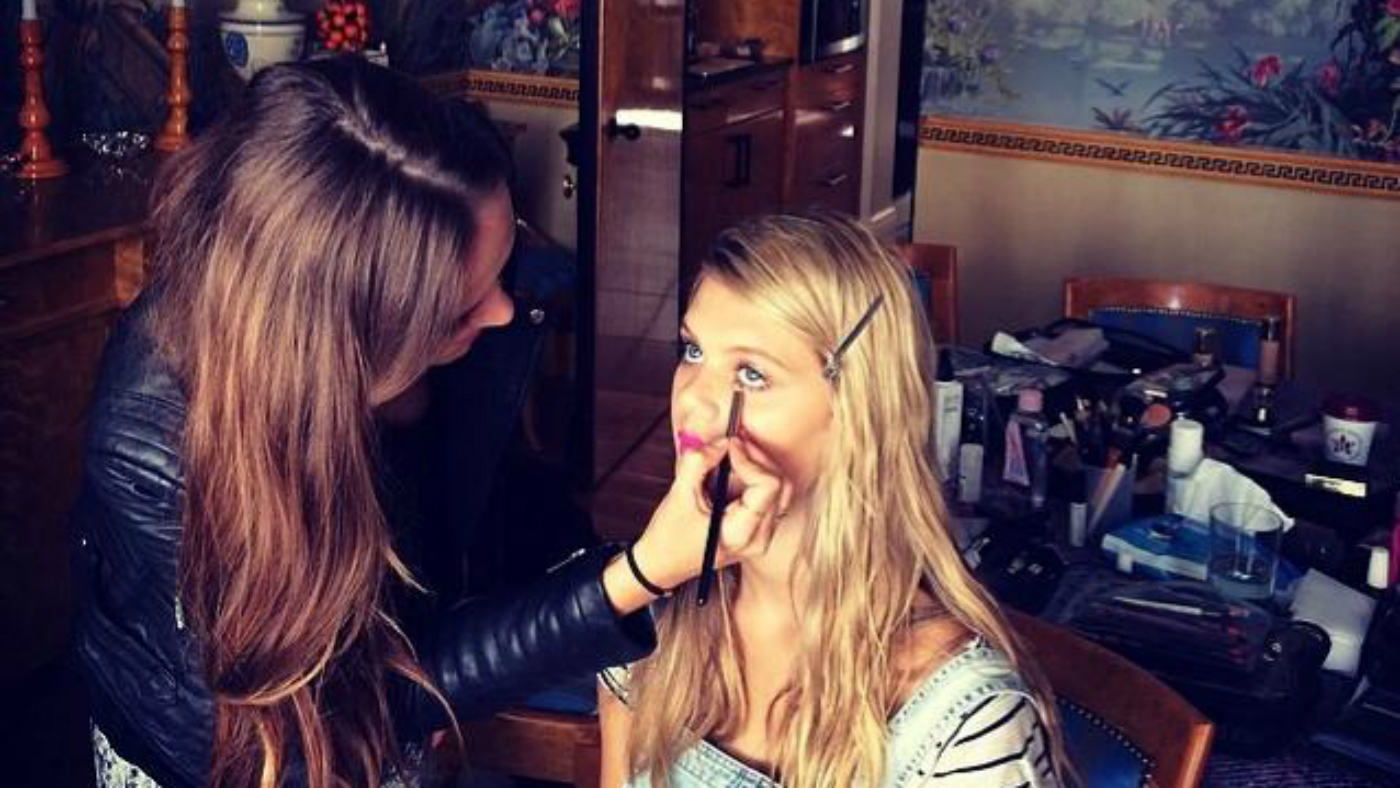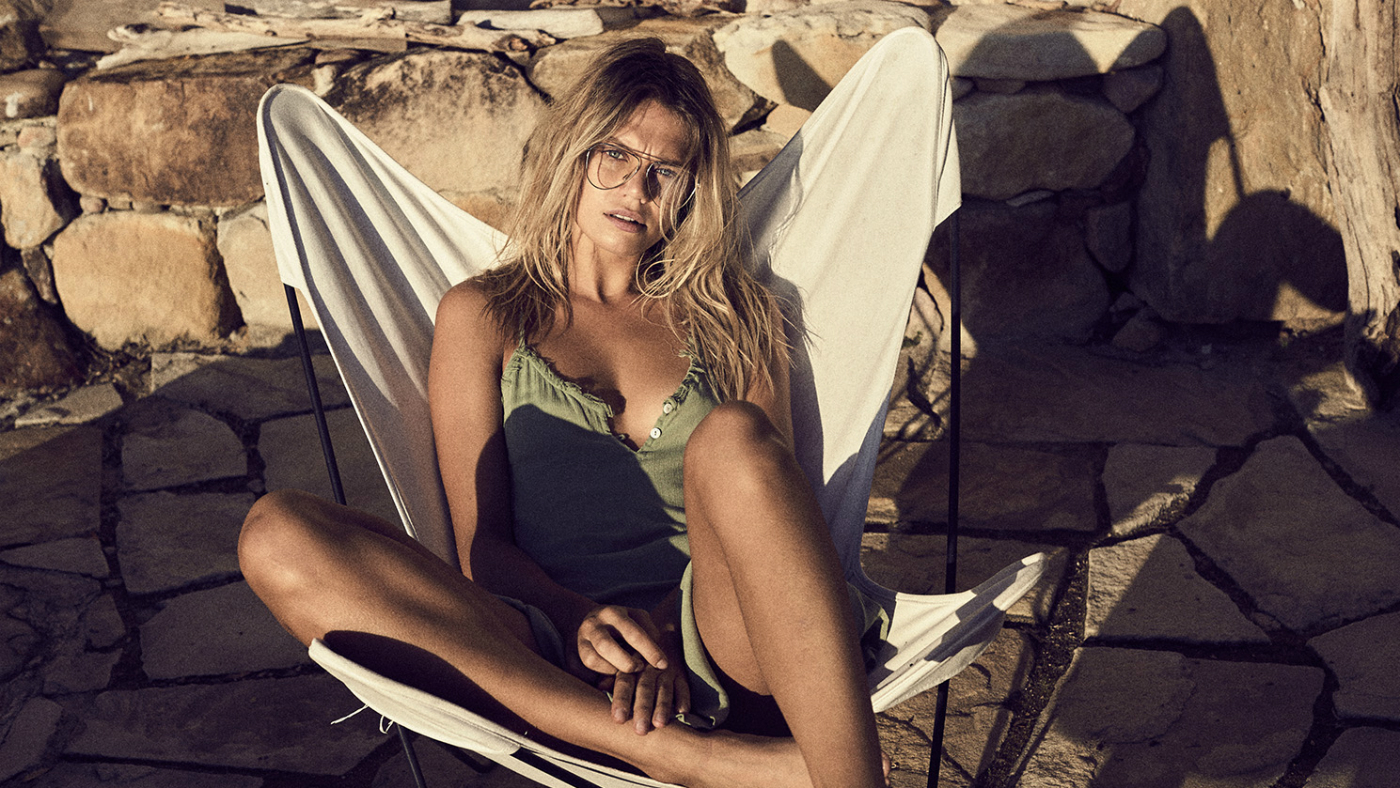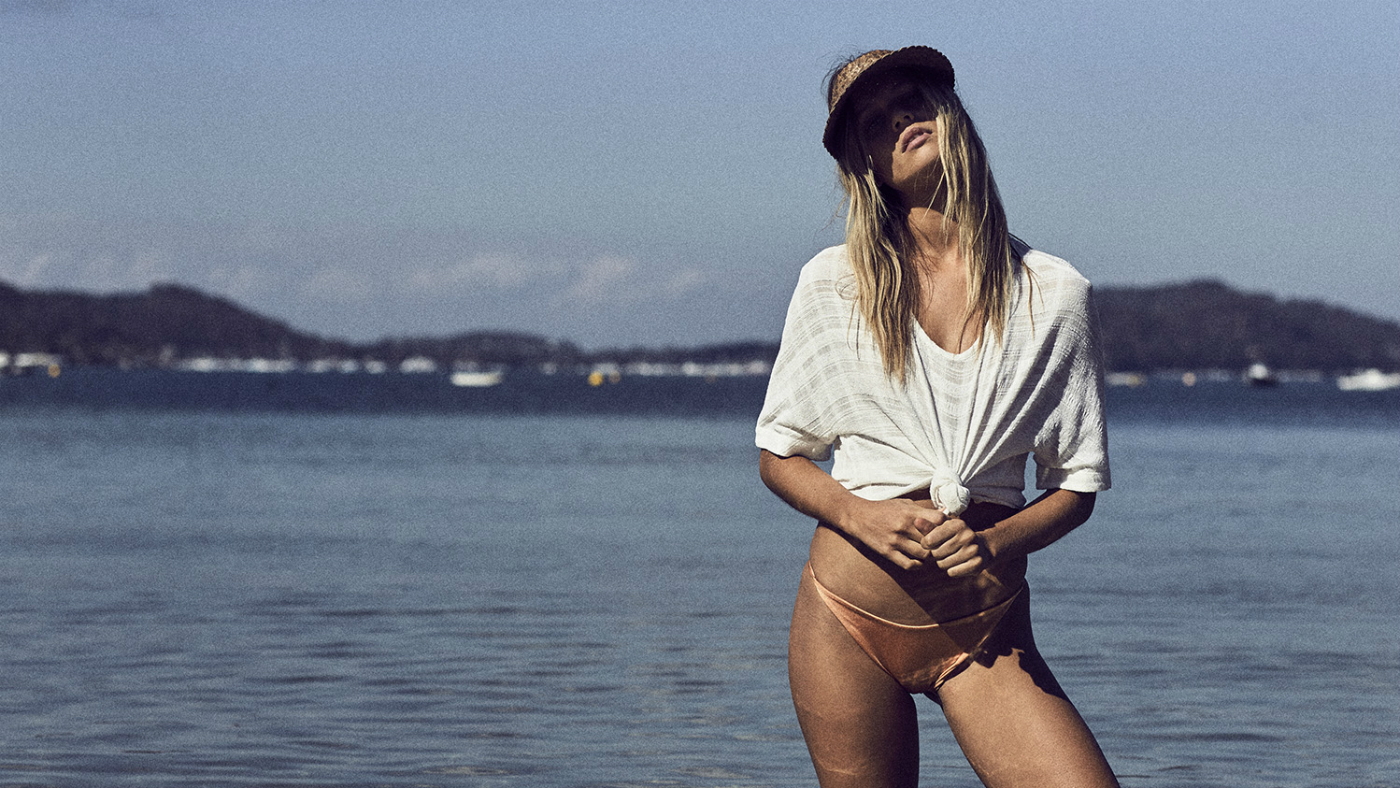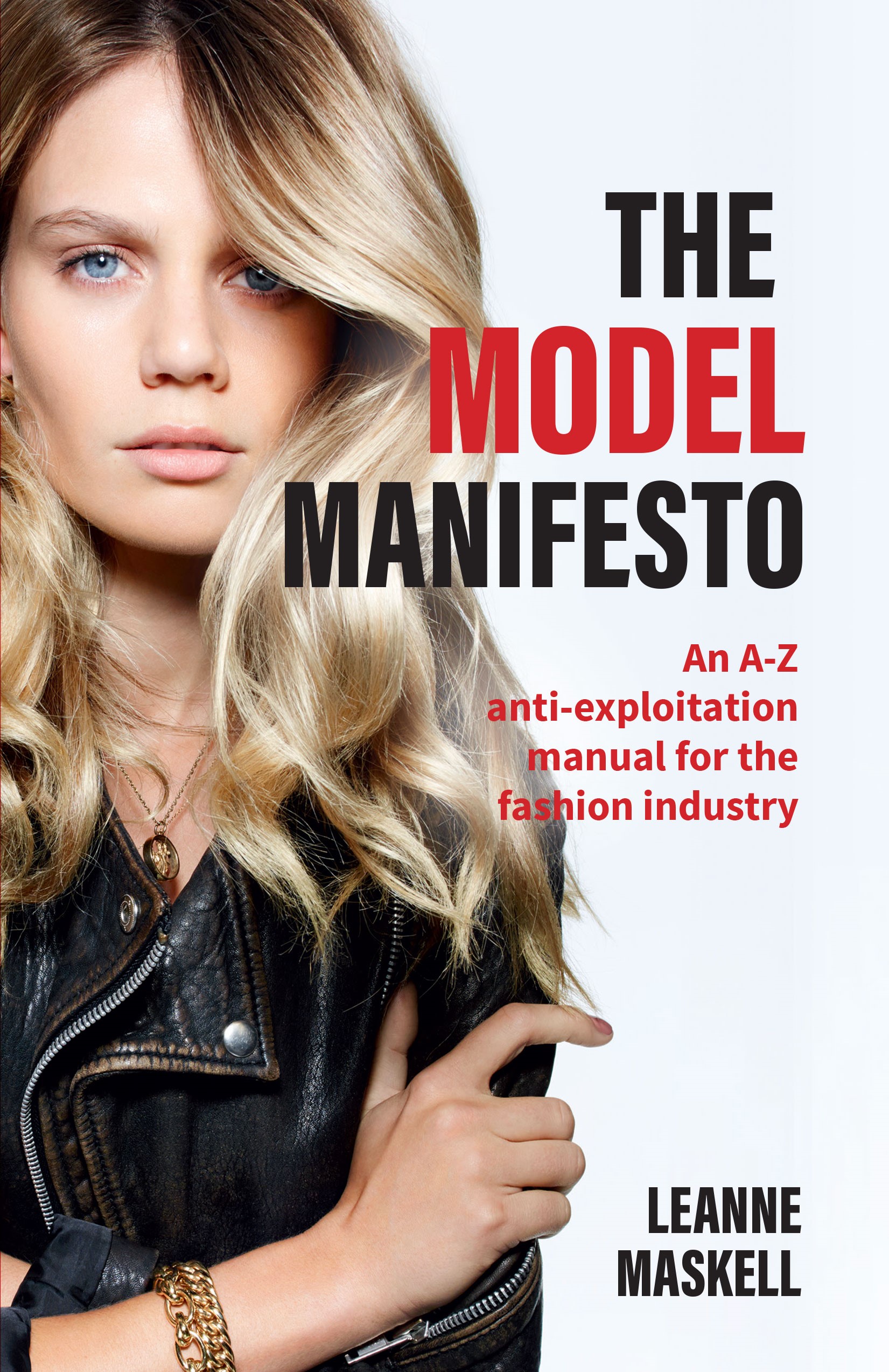What to know if you are planning to become a model
An edited extract from The Model Manifesto, an anti-exploitation manual for the fashion industry by Vogue model Leanne Maskell

A free daily email with the biggest news stories of the day – and the best features from TheWeek.com
You are now subscribed
Your newsletter sign-up was successful
Being a successful model is like winning the lottery; regardless of how you look, it is completely down to luck. There is no clearly defined career path and no specific regulation in place to protect models, meaning that thousands of people are exploited on a daily basis in the hope of becoming the next supermodel. A very messy tangle of relationships intertwines between agencies and clients for models, often blurring the lines between professional and personal boundaries.
It is more important than ever that models receive the knowledge they need to stay safe and to not only be a successful model, but a smart, empowered one. If you want to model, do your research and select an agency to best strategize your career in line with your ambitions. These days pretty much anybody can be a model, with many markets catering for different types of models. ‘Curve’ modelling generally starts at a size 12, high fashion modelling traditionally requires 34 inch hips and commercial modelling permitting heights below 5’11.

Remember that your agency works for you - you don’t work for them. It is vital to find a legitimate agency that believes in you, as there are many fraudulent or negligent agencies currently operating that can lead to disastrous scenarios. This is because there are no official requirements to start up a model agency or become a model booker. Employment agencies were licensed until 1994, but these were removed by legislation - unlike agencies involving agriculture, shellfish gathering or forestry. This means that virtually anybody can work with impressionable, vulnerable models - including pedophiles and ex-convicts.
The Week
Escape your echo chamber. Get the facts behind the news, plus analysis from multiple perspectives.

Sign up for The Week's Free Newsletters
From our morning news briefing to a weekly Good News Newsletter, get the best of The Week delivered directly to your inbox.
From our morning news briefing to a weekly Good News Newsletter, get the best of The Week delivered directly to your inbox.
Many model agency contracts assign the models’ power of attorney to their agency, meaning they can act legally and financially on their models’ behalf with regards to ‘commercial activities’. This can include spending money on their behalf on things such as hairdressers and flights, then automatically deducting those costs from payments without even providing a receipt. Ironically, models usually retain full legal responsibility for these decisions or legally indemnify the agency.

You don’t need a portfolio to join a model agency, as many photographers will shoot agency signed models for free (called ‘test shoots’). You will work for free in ‘testing’ mode for several months before earning money, involving informal shoots occasionally taking place in photographer’s houses. Nowadays Instagram is an important part of the job and works alongside your portfolio, with clients viewing models’ accounts before booking them, often preferring models with high followers as these relate to potential sales.
Once your portfolio is ready, you will begin to attend castings (auditions) for jobs, which are unpaid. There is no standardised way for agencies to verify clients are who they claim to be nor standard way that castings should be carried out, so you must always be cautious when casting. Castings can take place anywhere from hotel rooms to offices, and can involve models being asked to do anything at all, from dancing in their underwear to learning a script. As clients can cast as many models as they like from as many agencies as they like, queues can sometimes be hours long. Typically, models book 1 in 15 castings but this can vary.

Models are normally told about their schedule the evening before via email or text, containing castings or jobs. It is assumed you are available at all times, including weekends, unless you ‘book off’ by notifying the agency why and when you are unavailable to work. You will not have a choice in doing the jobs you have been booked on and will have to justify not attending specific castings.
A free daily email with the biggest news stories of the day – and the best features from TheWeek.com
When you are booked on work, this can involve anything at all, from standing in the same pose for five hours to underwater photoshoots. You will usually find out the day of the job, as models rarely see the contracts for individual jobs which contain information such as what the job involves and your legal rights and responsibilities. It’s important to become a member of Equity, the model’s union or undertake personal insurance to protect yourself incase of injury at work.
There are no standard rates of pay for models, who are often expected to work for free or products in order to gain exposure. On average, models are paid around three months after completing a job and agency commission is automatically deducted, usually around 25% from the model with an additional 20% agency fee charged to the client. No tax is paid on your behalf, as models are self-employed in the UK and must file a self-assessment tax return at the end of each year.

Travel is common for models, who can be booked on jobs shooting abroad or sent to live in a new country for a few months ‘on stay’. Your first ‘mother’ agency, can contract you out to foreign agencies without showing you the contracts, which can be extremely unfair and include terms such as the obligation to maintain certain measurements in order to be paid. Some may guarantee you will receive a specific amount of money, but this will not include agency commission and expenses, which tend to be very high. Foreign agencies take different commission amounts, reaching 75% in some countries.
You will usually have to pay for your flights, rent and working visa when going ‘on stay’. It is common for models to live in agency-owned ‘model apartments’, which are of notoriously bad quality and may involve multiple models sharing a room, yet paying extortionately high prices. However, model’s expenses will be usually covered if a client has booked them on a job shooting abroad, including their food and accommodation. It is important to always confirm with your agency all of the details of a job abroad, including visa requirements.
Due to the informal and intimate nature of jobs, those in power can exploit models very easily, such as by touching them inappropriately or making sexual advances. Models are regularly expected to undress in front of strangers at castings and jobs, as changing rooms are not always provided. Models commonly face pressure to pose partially or fully nude, unaware of what has been agreed on their behalf. Club promoters are also known to target models outside of castings and lure them into dangerous situations involving excess ‘free’ alcohol and drugs, which may amount to escort-type work in reality. Remember that nothing comes for free and beauty is priceless.

Only ever shoot what you are 100% comfortable with and trust no one. Although it may not feel like it at times, you can say no to anything and your wishes should be respected. To model, you need an incredibly thick skin and strong sense of self. Establish daily routines, surround yourself with a strong support network and know your boundaries.
Educate yourself on your career as a model as you would any other - learn everything you can about it and most importantly, know your rights. Modelling can provide once-in-a-lifetime opportunities, high rates of pay and the chance to run yourself as a global business, but you must be aware of the potential pitfalls in order to avoid them.
Leanne Maskell is the author of The Model Manifesto, an anti-exploitation manual for the fashion industry, out 2 May 2019 and priced at £14.99. For more information go to themodelmanifesto.com or follow @themodelmanifesto
Photography by Wade Edwards, styling by Maria Sidoti and outfits by Rowie The Label

-
 The environmental cost of GLP-1s
The environmental cost of GLP-1sThe explainer Producing the drugs is a dirty process
-
 Greenland’s capital becomes ground zero for the country’s diplomatic straits
Greenland’s capital becomes ground zero for the country’s diplomatic straitsIN THE SPOTLIGHT A flurry of new consular activity in Nuuk shows how important Greenland has become to Europeans’ anxiety about American imperialism
-
 ‘This is something that happens all too often’
‘This is something that happens all too often’Instant Opinion Opinion, comment and editorials of the day